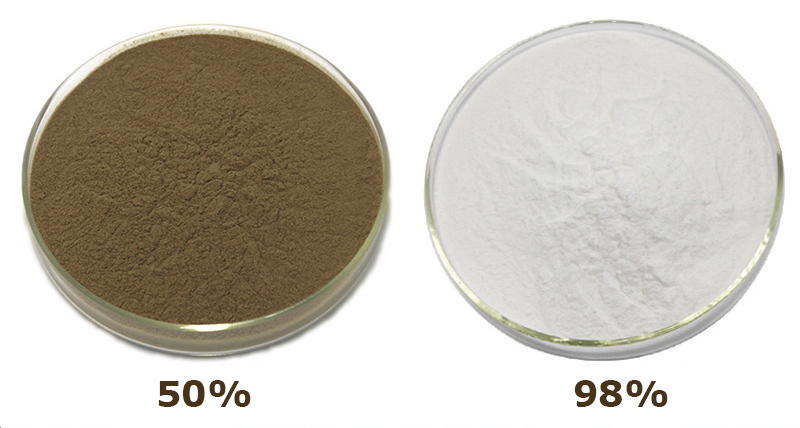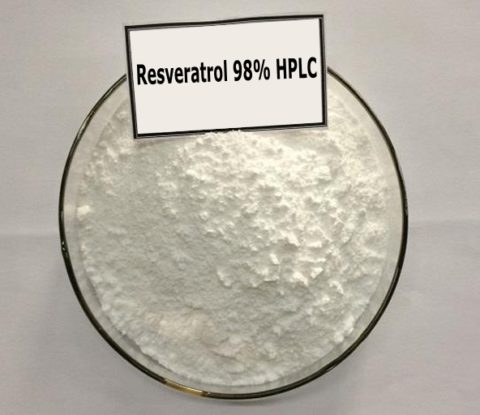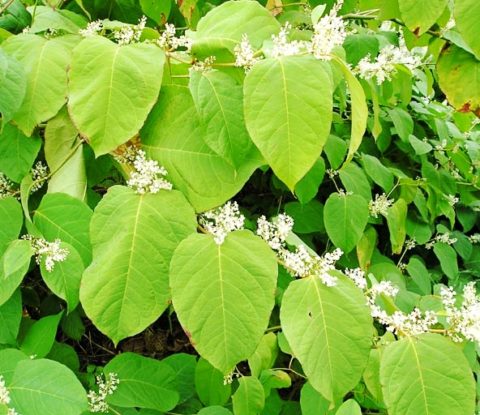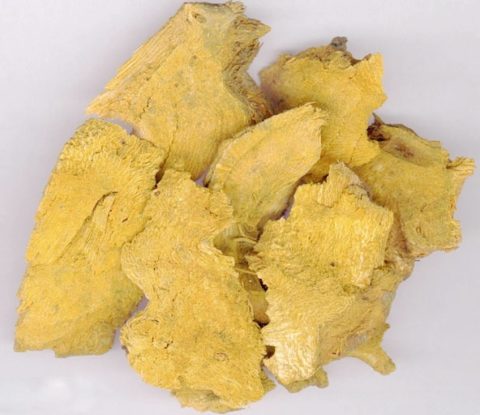
Polygonum Cuspidatum Extract, Japanese Knotweed Extract Powder, Resveratrol 50%, 98% HPLC
Research shows that resveratrol can regulate the cholesterol level in the blood by combining with estrogen receptor in the human body, inhibit the formation of blood clots and adhesion to the blood vessel wall, so as to inhibit and reduce the occurrence and development of cardiovascular disease and reduce the risk of cardiovascular disease in the human body.
Polygonum Cuspidatum Extract Resveratrol 50%, 98% HPLC
【Latin Name】: Polygonum cuspidatum Sieb.et Zucc.
【Other names】: Japanese knotweed extract
【Specification】: Resveratrol 50%, 98% by HPLC
【Extracted Part】: Root
【CAS No.】: 501-36-0
【Molecular Formula】: C14H12O3
【Molecular weight】: 228.25
【Appearance】: Brownish yellow(50%) to White(98%)Fine Powder
【Particle size】: 80 mesh
【Benefits】: Anti-cancer, anti-mutagenic, anti-oxidant
【Packing】: Packed in 25 kg/fiber drum with double plastic bags inside
【Storage】: Store in a cool&dry place away from Moisture, Light, Oxygen
【Shelf Life】: 24 months since the manufacturing date

Resveratrol (3,5,4′-trihydroxy-trans-stilbene) is a stilbenoid, a type of natural phenol, and a phytoalexin produced naturally by several plants in response to injury or when the plant is under attack by pathogens such as bacteria or fungi. Food sources of resveratrol include the skin of grapes, blueberries, raspberries, mulberries, senna. As of 2016, there is no evidence that consuming resveratrol-rich foods or taking it as a dietary supplement has any health effects in humans.
Resveratrol was originally isolated by Takaoka from the roots of hellebore in 1940, and later, in 1963, from the roots of Japanese knotweed. In grapes, trans-resveratrol is a phytoalexin produced against the growth of fungal pathogens such as Botrytis cinerea. Its presence in Vitis vinifera grapes can also be constitutive, with accumulation in ripe berries of different levels of bound and free resveratrols, according to the genotype. In grapes, it is found primarily in the skin, and, in muscadine grapes, also in the seeds. The amount found in grape skins also varies with the grape cultivar, its geographic origin, and exposure to fungal infection. The amount of fermentation time a wine spends in contact with grape skins is an important determinant of its resveratrol content. It is also found in Pinus strobus, the eastern white pine.
Researches on Resveratrol Benefits
Resveratrol has been promoted to have many health benefits such as protecting the heart and circulatory system, lowering cholesterol, and protecting against clots which can cause heart attacks and stroke. Animal studies have suggested it can lower blood sugar levels. Because resveratrol is considered an antioxidant, it is often promoted to reduce the incidence of various cancers. Animal studies also suggest resveratrol may lower brain plaque levels in Alzheimer’s disease. However, well-controlled, human clinical trials are lacking in all of these areas and many of the resveratrol claims are based in animal studies in mice. Resveratrol is considered a dietary supplement and is not approved by the U.S. Food and Drug Administration for any indication. Definitive studies demonstrating appropriate doses, uses, long-term safety and effectiveness have not been conducted.
However, the clinical utility of resveratrol in humans is under investigation. Animal studies in mice suggest there might be benefits of weight loss, reduction in insulin resistance, and reducing mortality in diabetes. Anti-cancer effects have been demonstrated in animals models, as well. Human research with resveratrol is limited. A small and brief randomized, double-blind, cross-over study in the November 2011 issue of Cell Metabolism demonstrated that 150 mg of resveratrol once daily for 30 days significantly lowered mean systolic and arterial blood pressure, tumor necrosis factor (a marker of inflammation), plasma glucose and insulin concentrations, and plasma triglyceride concentrations, among other findings. Adverse reactions to resveratrol were not seen in the study. Researchers note that longer studies at higher doses are required before results can be confirmed.
1. Endurance Enhancement
According to a 2012 Canadian study, resveratrol supplementation could provide similar skeletal muscle benefits as endurance training. The study, conducted over a 12-week period on rats, found that resveratrol supplementation also resulted in an increase of endurance, oxidative metabolism, and enhanced cardiac function. Better yet, the combination of endurance training with resveratrol supplementation resulted in a performance increase of 21%. (Vernon W. Dolinsky, 31 May 2012 , “Improvements in skeletal muscle strength and cardiac function induced by resveratrol during exercise training contribute to enhanced exercise performance in rats”. DOI: 10.1113/jphysiol.2012.230490)
2. Cardioprotective effects
Moderate drinking of red wine is associated with a reduced risk of heart disease. This is best known as “the French paradox”. Studies suggest resveratrol in red wine may play an important role in this phenomenon. It appears to stimulate endothelial nitric oxide synthase (eNOS) activity and inhibit platelet aggregation.( Olas B, Wachowicz B; Wachowicz (August 2005). “Resveratrol, a phenolic antioxidant with effects on blood platelet functions”. Platelets 16 (5): 251–60.doi:10.1080/09537100400020591. PMID 16011975.). According to the Center for Disease Control and Prevention, in 2011, heart disease ranked as the United States’ leading cause of death. Consider your family history and plan ahead. A Canadian study found that by drinking one to two 5-ounce glasses of wine per day, study participants were able to significantly reduce their risk of developing artherosclerotic disease, a precursor to heart disease and stroke, and subsequently also reduce their risk of death by roughly 30%.( Paul E. Szmitko, BSc; Subodh Verma, MD, PhD, “Red Wine and Your Heart”, Circulation.2005; 111: e10-e11doi: 10.1161/01.CIR.0000151608.29217.62)
3. Cancer
As of 2014, the results of limited human clinical trials with small samples sizes of the effects of resveratrol on cancer are inconsistent. Testing of resveratrol in animal models of cancer have also shown mixed results. The strongest evidence of anticancer action of resveratrol exists for tumors it can contact directly, such as skin and gastrointestinal tract tumors. For other cancers, the evidence is uncertain, even if massive doses of resveratrol are used. Resveratrol treatment appeared to prevent the development of mammary tumors in animal models; however, it had no effect on the growth of existing tumors. Paradoxically, treatment of prepubertal mice with high doses of resveratrol enhanced formation of tumors. Injected in high doses into mice, resveratrol slowed the growth of neuroblastomas.( Athar M, Back JH, Tang X, Kim KH, Kopelovich L, Bickers DR, Kim AL; Back; Tang; Kim; Kopelovich; Bickers; Kim (November 2007). “Resveratrol: a review of preclinical studies for human cancer prevention”. Toxicol. Appl. Pharmacol. 224(3): 274–83. doi:10.1016/j.taap.2006.12.025. PMC 2083123. PMID 17306316.).
A recent study conducted in France concluded that resveratrol was able to slow down the production of cancerous cells and therefore could be considered an effective anticancer agent. Some of the top natural sources of resveratrol include blueberries, peanuts, grapes, and both red and white wines.( Anna-Kristina Marel, “Inhibitory effects of trans-resveratrol analogs molecules on the proliferation and the cell cycle progression of human colon tumoral cells”, Molecular Nutrition & Food Research, Volume 52, Issue 5, pages 538–548, May 2008).






